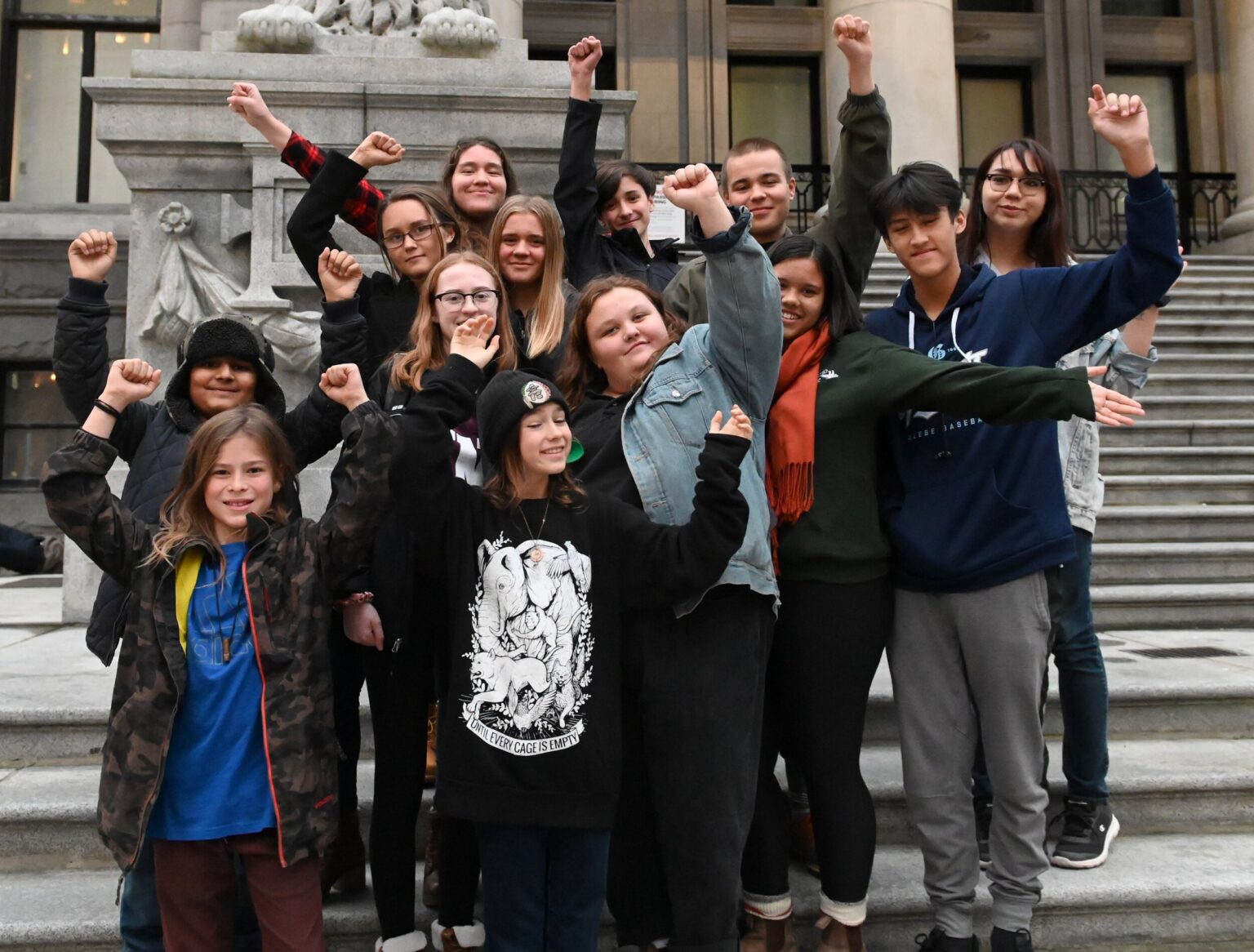A federal appeals court in Canada breathed new life into a youth-led constitutional climate lawsuit against the Canadian government, allowing it to proceed towards trial on a narrower scope and partially reversing the trial court’s ruling that the entire case should be tossed.
In its opinion issued on December 13, Canada’s Federal Court of Appeal determined that one part of the legal claims asserted in the case was viable and that a trial would help assess whether that claim violates the constitution. Initially filed in 2019 by 15 young Canadians, La Rose v. His Majesty the King alleges Canada’s policies and actions that perpetuate fossil fuels and worsen the climate crisis amount to violations of youths’ fundamental rights under the Canadian Charter of Rights and Freedoms. The case’s claims under Section 7 of the Charter, pertaining to the rights to life, liberty, and security of the person, should be addressed given the grave impacts of the climate crisis, the appeals court determined.
“After four years, we have finally had a court affirm the validity of our experiences and the Government’s responsibility to youth,” plaintiff Lauren Wright said in a statement. “The chance to have our day in court on our section 7 claim is a massive step forward that brings me hope.”
While the court asserted that other claims in the case, including under the public trust doctrine and Section 15 of the Charter, were rightly dismissed, it disagreed with the determination from Justice Michael Manson of Canada’s Federal Court that the case overall was too political and unprecedented to warrant rejection by the courts. Manson dismissed the suit in an October 2020 ruling.
“Where novel Charter claims test the boundaries of a right, such claims may require a trial in order to understand the nature of the legislation, executive action or regulation and the harm experienced by claimants. This is one of those cases,” Justice Donald J. Rennie wrote in the unanimous appeals court decision. The court explicitly recognized that “the burden of addressing [climate] consequences will disproportionately affect Canadian youth,” and that climate impacts like displacement and loss of culture, food insecurity, and even death, are “widespread and grave.”
“Back on the track to trial”
The court’s decision comes after a hearing earlier this year to determine if the case should go forward. Before the case can move to trial, the court requested that plaintiffs’ attorneys revise the complaint to focus on challenging a particular government action or policy.
“That’s exactly what we’ll do, and once we amend the complaint in that way we are confident that we’ll be back on the track to trial,” Andrea Rodgers, senior litigation attorney at Our Children’s Trust – a nonprofit law firm that spearheads and supports rights-based youth climate lawsuits against governments and is backing the Canadian case – told DeSmog. She said the legal team plans to file the amended complaint early next year. A trial could be scheduled to start sometime in 2025.
An appeal from government defendants to Canada’s Supreme Court is unlikely at this stage, Rodgers said.
“The Government of Canada shares the concerns of Canadians across the country and agrees that climate change is an urgent priority and that there is more to do,” Hannah Boonstra, spokesperson for Environment and Climate Change Canada said in a statement.
“It is also important to recognize the role that collective action has in addressing climate change, and that young people and Indigenous communities are among those leading the charge toward a cleaner future,” she added. Boonstra said the government would make no further comments since the case is before the courts.
Canada is one of the world’s largest emitters of climate pollution, and ranks as the fourth biggest producer of oil and sixth biggest fossil gas extractor. According to a September “Planet Wreckers” report from Oil Change International, Canada is poised to become the second largest contributor, after the U.S., to cumulative carbon emissions from new oil and gas projects through 2050. Climate Action Tracker rates Canada’s progress towards meeting the goals of the Paris Agreement as “highly insufficient.” The appeals court ruling notes that Canada “has consistently missed the emissions targets it has set for itself” and is “similarly on track to miss its future emissions targets.”
Rodgers said that although the Canadian government acknowledges that climate change endangers its youth, actions speak louder than words.
“The emissions continue to rise, and the pipelines continue to be authorized, and the oil continues to flow,” she said. “That’s why courts need to step in and draw the line on what is constitutionally permissible. Unfulfilled government promises are not going to protect young people from climate change.”
Subscribe to our newsletter
Stay up to date with DeSmog news and alerts







